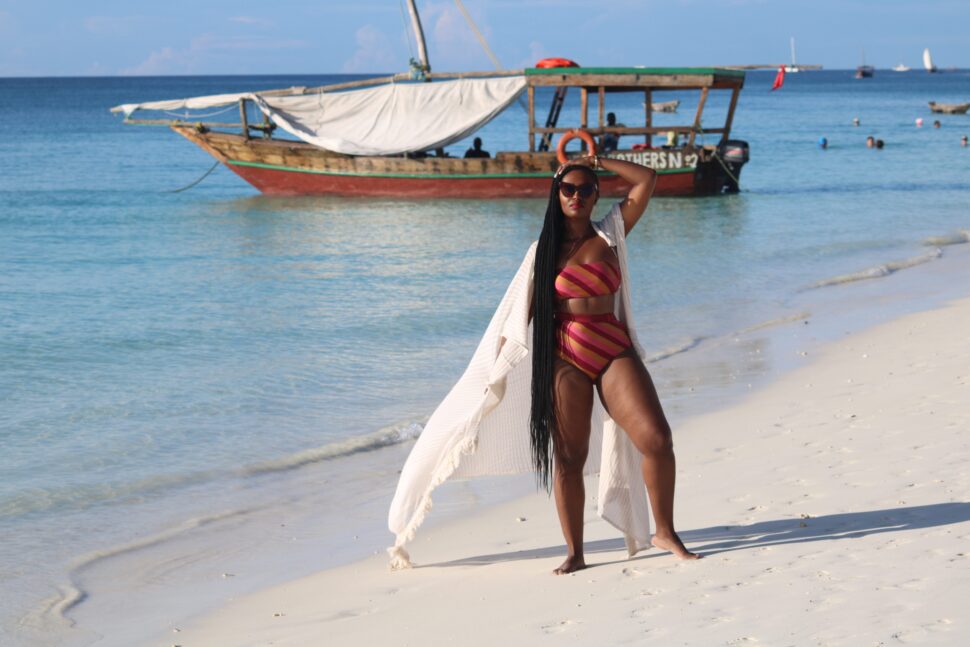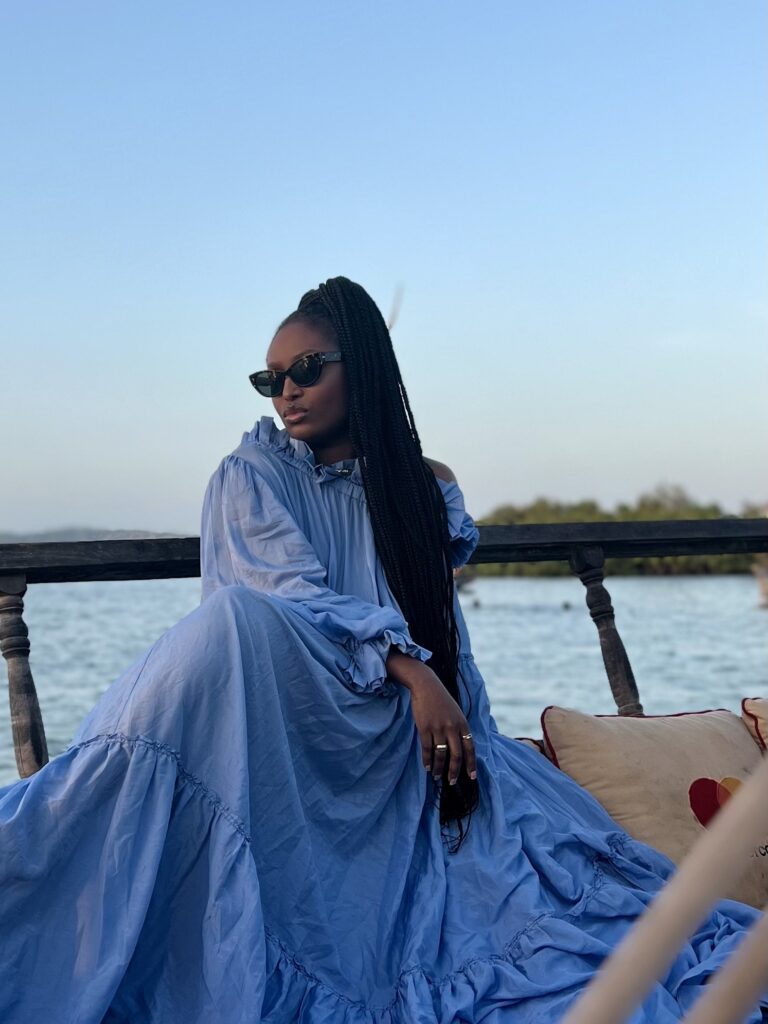Tenicka Boyd dedicated her life to the plight of the underrepresented. For 15 years, her talents have benefitted the American Civil Liberties Union and The White House under the Obama Administration. As a youth, she was no stranger to social justice. Boyd came from a progressive family that advocated for the people within their community. Boyd released her creativity during the pandemic.
She became a social media influencer using the images of her travels, well-executed videos and her innate fashion sense. However, she isn’t selling skincare and yoga pants. Boyd uses her social media to leverage attention and convey the message of how Black people should support underrepresented relatives of the diaspora.
Boyd redefines the term “triple-threat.” She is an activist, ambassador and family woman. For Women’s History Month, Travel Noire sat down with Boyd to discuss her journey and her new passion for Africa.
Travel Noire: How did working for the ACLU and the Obama Administration contribute to the person you are today?
Tenicka Boyd: It is really fundamental to who I am. When I worked on social issues, I deeply believed that policy work would shift the way marginalized people were treated in this country.
To some degree, I still believe that.
TN: Your social media is filled with vibrant images from different countries in Africa and a couple of designers. Could you give us one example of how your work as a social ambassador has contributed to the lives of African people?

TB: While I enjoy being African American specifically, I also find great joy in being a part of such an amazing diaspora. For some people that follow me, I am the first African American they know who travels to the continent frequently.
With such a large social media platform, I think it’s important to not only expose people to the obvious beauty of so many African countries, but also African designers, cuisine and some of the sociopolitical issues.
Africa, as a continent, is really what’s now and it’s what’s next. I think it’s important to constantly sing her praises.
TN: As someone who travels to Africa often, what do you feel Black Americans can gain from that experience?
TB: I think it’s important to see Africa for yourself. It is, to me, the most beautiful continent in the whole world with 53 countries, thousands of languages and a million different opportunities.
It’s good to connect with your cultural roots, but also to understand the complexity of the continent. Some people go with this deep need to provide charity, which can be so patronizing to a continent so incredibly rich in resources. For me, it’s about a mutual exchange of love.
TN: What tips could you provide for parents who wish to travel the world with their children?

TB: My daughter has been to over 50 countries.
I always tell parents to find affordable flights and travel during school breaks. Don’t hesitate to go because [you] think kids are too young or won’t remember. There is something beautiful about watching my daughter dance at Afrochella in Accra, swing with giraffes in Kenya and swim on Camp’s Bay for the 5th year in a row. Time waits for no one.
TN: How are you able to balance work, travel, your marriage and being a mother? What are the toughest compromises you’ve had to make, and how did they work out?
TB: I had to learn that motherhood, for me, was not going to look the way it did for the women I grew up with. That was by design.
I was intentional about being a full, healthy woman in spite of my titles. There are so many times when I’ve had to drop a ball in order to pick another one up, but I’ve always tried to stay true to myself.
TN: On Travel Noire’s website, we love to showcase stories of Black people who move to different parts of the world. Besides Ghana, what countries you’ve experienced would you recommend for us to consider moving to and why?
TB: My husband and I are currently building a vacation home right outside of Johannesburg. I believe it’s one of the most beautiful places to retire one day. So of course I’d have to say Jo’Burg! I also really love the coast of Dakar in Senegal. Such a lovely country with the nicest people I’ve ever met.
RELATED: On ‘In Living Color Abroad’ Black And Brown Expats Share Their Experiences
TN: What advice could you give to someone who is interested in joining you in your efforts and becoming a social ambassador for countries within the diaspora?

TB: You have to have an unshakeable, unmovable and unconditional love for a continent that really does not belong to you.
It may be a part of your DNA, a part of your history or aspects of your culture. But, it is not yours. You’ve got to be committed to visiting, learning, immersing and being a student of the greatest continent on Earth.
Not romanticizing, [and] not demonizing based on a few bad experiences. You’ve got to advocate, advance and constantly stay engaged. You’ve got to see it through.
This article has been edited and condensed for length and clarity.



